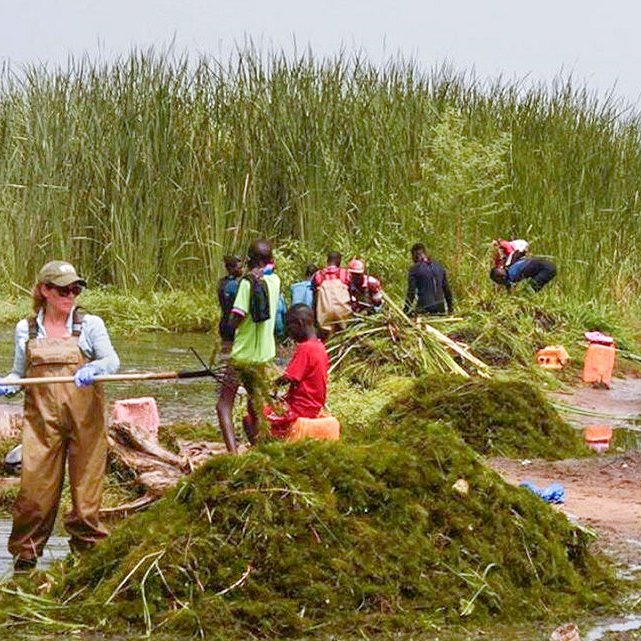2024: Scaling a Solution to Climate Change, Health, Agriculture, Water, and Energy Challenges in Africa
Schistosomiasis, a disease caused by blood flukes that live in freshwater snails, afflicts over 200 million people globally, with over 85% of cases occurring in Africa. Snails live in aquatic vegetation and humans become infected when they enter infested water bodies to gather water for drinking, agriculture, or other purposes. Climate change is exacerbating the problem by changing rainfall patterns and increasing pest and disease pressures. Cornell researchers and their colleagues discovered that removing invasive aquatic vegetation significantly reduces Schistosomiasis in children and increases open water access without harming water quality or freshwater biodiversity. Further, the removed vegetation can be turned into compost and livestock feed – creating business opportunities for local entrepreneurs and providing local, sustainable sources for agricultural inputs. The researchers seek to scale and sustain their innovation with a network of partners in Senegal.
Investigators: Chris Barrett, Dyson School; Ying Sun, School of Integrative Plant Science
